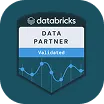What Is a Residential Proxy? The Ultimate Guide


In the world of large-scale web data collection, residential proxies are a critical tool. For businesses and data analysts, these proxies are not just about enhancing online privacy, but more importantly, they are essential for efficiently gathering vast amounts of web data. In this article, we will learn what these proxies are exactly, compare them with other proxy types, and understand how they work.
Let’s dive in!
Exploring the Basics: What Are Residential Proxies?
At the heart of effective web data collection, residential proxies serve as an essential intermediary. Unlike datacenter proxies that utilize IP addresses sourced from data centers, residential proxies use IP addresses assigned to real users and devices by Internet Service Providers (ISPs). This crucial distinction confers an element of authenticity on residential proxies, significantly reducing their likelihood of being detected and blocked by web servers.
Comparing Residential and Datacenter Proxies
The choice between residential vs. datacenter proxies often comes down to the source and reliability of the IP addresses they use. To better understand these differences, let's examine them side by side:
Residential Proxies vs. ISP Proxies
It's important to differentiate between residential proxies and ISP proxies, which are often confused as the same thing. While both are provided by ISPs, residential proxies are IPs assigned to real-world users and devices. ISP proxies, on the other hand, are direct IP allocations from the ISP to the proxy provider. This distinction is crucial for tasks that demand a high degree of anonymity and authenticity. Residential proxies, being linked to actual users, offer a greater level of non-detectability, making them more reliable for comprehensive web scraping operations.
Understanding these nuances is vital in selecting the right type of proxy for your data collection needs. Residential proxies, with their real-user IP addresses, provide a robust solution for navigating the web undetected, making them a preferred choice for large-scale and sophisticated web data collection tasks.
How Do Residential Proxies Function?
Residential proxies play a critical role in the realm of web data collection by rerouting internet traffic, which effectively masks the user's original IP address. This capability is particularly vital in large-scale web scraping and data collection, ensuring access to a broad spectrum of data while preserving anonymity.
The Process of Traffic Routing and IP Masking
The operation of residential proxies involves a few key steps in rerouting internet traffic:
- User's Web Request: It starts with the user's device sending a web request.
- Proxy Server Rerouting: This request is then routed through a residential proxy server.
- IP Address Reassignment: The proxy server assigns a different IP address to the request.
- Reaching the Target Website: Finally, the request reaches the intended website.
Throughout this process, the user's original IP address remains hidden, and to the target website, it appears as if the request is coming from the proxy's IP address. This diagram illustrates the flow:
Unique Characteristics of Residential Proxies
Residential proxies are distinguished by several key characteristics that make them ideal for tasks requiring anonymity and precise geographic targeting:
- Legitimate ISP-Provided IP Addresses: They use IPs provided by ISPs, which are associated with actual users, enhancing their credibility.
- Harder to Detect: Due to their legitimate nature, they blend seamlessly with regular internet traffic, making them less prone to detection.
- Geographic Targeting: Residential proxies enable precise targeting based on geographic location, providing access to region-specific content.
- Dynamic IP Rotation: Many residential proxy services offer IP rotation, changing the IP address with each request or at regular intervals, further enhancing anonymity.
- Broad Compatibility: They are generally compatible with various web protocols and services, making them versatile for different web activities.
- High Anonymity Level: By masking the original IP address, they provide a high level of privacy and security for the user.
These characteristics underscore the effectiveness of residential proxies in navigating the digital landscape, particularly for complex projects that involve the usage of a high-quality web scraping tool.
Practical Use Cases: What Residential Proxies Are Used For
Residential proxies serve as a versatile tool in various internet-related activities. Their unique ability to mask a user's actual IP address with another from a different geographical location opens up a world of possibilities. Below, we delve into some of the most common and impactful use cases for residential proxies.
Web Scraping and Data Mining
In the data-driven digital age, web scraping has become an indispensable practice for businesses, researchers, and marketers. Residential proxies offer a significant advantage in this area. When scraping websites for data, businesses face challenges like being blocked by anti-scraping measures or dealing with an IP ban. Residential proxies overcome these obstacles by rotating IP addresses, which helps mimic the behavior of multiple users accessing a site from different locations. This not only reduces the chance of detection and subsequent blocking but also enables the collection of vast amounts of data without disruption.
The use of residential proxies in data mining allows for the extraction of valuable insights from various web sources. Whether it’s price monitoring, market research, or sentiment analysis, residential proxies provide the anonymity and geographic targeting necessary for efficient and comprehensive data mining operations.
Managing Social Media Across Different Regions
Social media platforms are a battleground for visibility and engagement in the marketing world. However, managing multiple accounts across different platforms can be a challenge, especially when platforms have restrictions on account creation from the same IP address. Residential proxies are a perfect solution for this, as they can provide IPs from different regions, allowing social media managers to operate various accounts as if they are based in multiple countries. This ability is crucial for international marketing strategies where localization and community engagement play a pivotal role in brand success.
Moreover, residential proxies aid in automating social media tasks while minimizing the risk of account suspensions or bans that are common with non-residential IP addresses. They provide the necessary cover for operations, ensuring continuity in social media management across different regions.
Collecting data from social media platforms? Residential proxies are utilized in our social media scraper too!
Bypassing Geo-Restrictions in Content Access
Geo-restriction is a common practice used by content providers to limit access to their services based on the user's geographical location. Residential proxies provide a powerful workaround for this limitation. By assigning an IP address from the desired location, users can bypass these restrictions and gain access to a plethora of geo-locked content, including streaming services, news outlets, and gaming platforms - all while hiding their IP.
This capability is not just beneficial for individual users looking to access a wider range of entertainment options; it’s also valuable for businesses conducting market analysis or testing international ad campaigns. With residential proxies, they can effectively preview and verify the content delivery in targeted regions, ensuring their messages reach the intended audience accurately.
In essence, residential proxies are a key asset for a wide array of online activities. They not only protect users' privacy but also enhance their capacity to engage with digital content on a global scale. Whether for competitive intelligence, brand management, or personal use, residential proxies offer the flexibility and anonymity needed to navigate the web without boundaries.
Choosing the Right Residential Proxy Provider
Selecting the right residential proxy provider is a pivotal decision that can significantly impact the effectiveness of your data collection, marketing strategies, and overall online operations. When considering which provider to choose, it's essential to evaluate several key factors that contribute to the reliability and integrity of the service.
Key Considerations in Provider Selection
Here are some crucial elements to consider when searching for the best residential proxy services:
- Reputation and Reliability: Research the provider's track record. Look for reviews, testimonials, and case studies that demonstrate their reliability. A provider with a positive reputation in the industry, like Nimble, is likely to offer stable services that you can trust for your proxy needs.
- IP Pool Size and Diversity: A large and diverse IP pool ensures that you have access to proxies from various geographical locations, which is essential for tasks like market research and bypassing geo-restrictions. Check if the provider has a wide selection of IPs that cater to your specific requirements.
- Speed and Performance: The best proxy services will not compromise on speed and performance. Fast response times are crucial, especially in operations like web scraping where efficiency is paramount.
- Customer Support: Good customer service is an indicator of how much a provider values its clients. Ensure that the provider offers responsive and helpful support, ready to assist you with any technical issues or questions that may arise.
- Ethical Practices: It's important to partner with a provider that sources IPs ethically. Nimble, for example, ensures that all its proxies come from legitimate sources and respects user privacy and consent.
- Pricing and Plans: Analyze the pricing structures and subscription plans. The best providers offer transparent pricing without hidden fees and provide flexible plans that can scale with your business needs.
- User-Friendly Interface: An intuitive dashboard or interface from the provider can greatly simplify the process of managing your proxies, especially when handling a large volume or variety of IPs.
- Security Features: Security is paramount. The provider should offer secure proxy services with robust measures in place to protect your data and anonymity.
- Trial Period or Money-Back Guarantee: A trial period or refund policy is a sign of confidence in service quality. It allows you to test the proxies with your specific use cases before making a long-term commitment.
Assess key factors to find a proxy provider like Nimble that matches your needs and values with trusted, ethical service. Nimble stands out as a solid choice in your provider selection.
Conclusion
In the interconnected web of today’s digital ecosystem, residential proxies have established themselves as an indispensable asset. Residential proxies streamline web scraping, manage social media globally, and unlock geo-restricted content, ensuring user privacy and data collection efficiency. When adopting residential proxies, selecting the right provider is crucial to fully leverage their capabilities.
Ready to enhance your online strategies with high-quality proxies? With Nimble, you can buy great proxies now and start reaping the benefits of a truly global internet experience.
FAQ
Answers to frequently asked questions

.avif)











